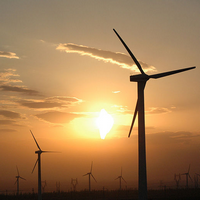In a landmark address to the U.N. Climate Change Conference last month, Chinese President Hu Jintao announced Beijing's commitment to trim the explosive growth of China's carbon emissions "by a notable margin." But he also reiterated his country's hackneyed dictum that industrialized countries should bear most of the burden for emissions-cutting. Hu's headline-grabbing speech captured the essence of China's Janus-faced climate change policy -- which, despite remarkable progress, continues to be bogged down with implementation problems and overshadowed by China's concerns with economic growth and its leadership role in the developing world.
Currently the world's largest emitter of greenhouse gases, China has made admirable strides in its climate change policy over the last few years, and will probably continue to do so in the near future. China's first national climate change policy (.pdf), released in mid-2007, was a comprehensive document that provided a useful foundation on which to build. Beijing has already enacted fairly stringent fuel efficiency standards for vehicles and buildings, ended key fuel subsidies, and doled out lucrative economic incentives for investments in renewable energy and reductions in industrial emissions. It now aims to cut its "carbon intensity" -- or carbon dioxide emissions per unit of GDP -- by a "notable" margin, and increase the share of renewable energy in its total consumption to 15 percent by 2020.
This feverish pursuit of environmentally friendly policies is motivated not by global altruism but by national self-interest. By 2030, climate change-induced flooding and food and water shortages are projected to pose a grave threat to regime stability. Meanwhile, alternative energy sources help (.pdf) reduce reliance on foreign oil, thereby enhancing energy security, and greater energy efficiency and clean-energy technologies could generate significant economic payoffs.

